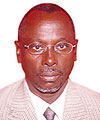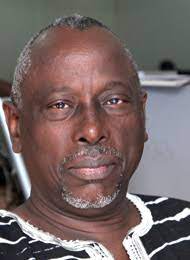The world’s oldest democracy is in a sort of democratic quandary following an inconclusive general election last Thursday. The election ended in a hung parliament. That means no single political party got enough seats in parliament to allow it to form a government without the support of some of the other parties.


The world’s oldest democracy is in a sort of democratic quandary following an inconclusive general election last Thursday.
The election ended in a hung parliament. That means no single political party got enough seats in parliament to allow it to form a government without the support of some of the other parties.
Many people – certainly the Liberal Democrats (Lib Dems) – have been quick to blame the current political impasse on the electoral system. The Lib Dems, have, in fact, been campaigning for a reform of the electoral system for a long time.
So, what is wrong with the system? The present system is based on the first-past-the-post winning a seat in parliament to represent a constituency where the majority may not have voted for him.
To illustrate: in a constituency of a hundred voters, three candidates from three parties vie for one seat. They get votes in the following way: one gets 39; another, 38 and the third, 23. The one with 39 votes takes the seat, but 61 people did not vote for him.
This hypothetical, and somewhat simplified, scenario may be repeated in many constituencies around the country giving the party with the highest number of members elected to parliament the right to form a government.
According to critics of the electoral system, it leaves a significant number of people without representation.
What then is the solution to a hung parliament? There are several options. One is the formation of a minority government.
This is inherently unstable and weak. Another is the formation of a coalition government. This is equally unstable. There is a great deal of squabbling among partners in a coalition which often leads to its collapse as has happened in many countries in Europe.
The third option, which is what the Lib Dems prefer, is to reform the electoral system so that the first-past-the-post winning arrangement is replaced by ptoportional representation. In simple terms this means seats in parliament are won in proportion to the size of votes a party wins.
This is where Rwanda can teach Britain a thing or two about a more equitable and stable form of democratic representation.
Power-sharing is enshrined in the Rwandan constitution. It is impossible to have a problem of forming a government like what is happening in Britain today.
Concerns like what the Lib Dems have about proportional representation have been answered in Rwanda. Political parties get seats in our parliament in proportion to the number of votes they get in a general election.
Equally, different political parties are represented in government. The beauty of this arrangement is that no one single party has a monopoly on power.
No one feels excluded from the exercise of power. Everyone has a visible role to play and a valuable contribution to make.
And the results show. Rwanda has one of the most stable, strong, efficient and effective governments in Africa. Economic growth has been phenomenal. Progress in education, health and other social services has been remarkable.
All this has been achieved because the national effort has not been dissipated in inter-party wrangles and other useless fights. Political inclusion, born out of the bitter experience of the effects of unprincipled division and the determination to move away from it and ensure that it never happens again has seen to this harnessing of national effort.
This is a lesson that Rwanda can also teach some of our African brothers who see in electoral politics an opportunity for a place at the banquet table (which is their view of political power) or for the promotion of narrow sectarian interests.
So when some of them lose, by means fair or foul, they will still want their place at the table and will resort to every means, including violence to achieve that.
In the last few years failure at the polls has led to widespread violence which in turn has been a prelude to demands for power-sharing. It has now become fashionable for losers at the polls to use violence as a sort of political blackmail to get to their objective.
And in this high stakes blackmail, ordinary people have been held hostage until a power-sharing deal is struck. Little faith has been shown in national efforts to resolve the conflict.
Non-nationals (admittedly of high regard) have invariably been invited to stand between the warring parties and prevent them from getting at each other’s throats, and hopefully get them to agree to some sort of accommodation.
As everyone now knows power-sharing arrived at in this manner is a recipe for instability and results in gridlock in government. The reason for this is because the basis for such arrangements is the notion that power is an end in itself, instead of being a means to an end.
It is also because power is shared among the political elite and answers their class needs and not those of the majority of the people on whose behalf they purport to serve.
The lesson that can be learnt from Rwanda is that power-sharing is a principle of governance and not a position of last resort or an ad hoc solution to an emergency.


